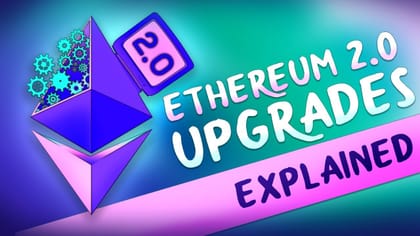A beta version of GameStop's non-custodial ETH wallet is available for download from the official website.
GameStop, an American video game, consumer electronics, and gaming merchandise retailer, announced that it would launch its own Ethereum wallet in beta version on May 23.
GameStop's ETH wallet will be used for storing non-fungible tokens, ERC-20 tokens, and Ether (ETH). On top of that, the retailer will also introduce its own mobile app at a given time.

Did you know?
Want to get smarter & wealthier with crypto?
Subscribe - We publish new crypto explainer videos every week!
What is Ethereum 2.0? Upgrades Easily Explained With Animations


The wallet extension is available for download and installation via the Chrome Web Store. GameStop ETH Wallet, similar to MetaMask's Chrome extension, will interface with its future NFT marketplace, which is set to release in Q2 2022.
Interestingly enough, GameStop's implementation will be self-custodial, which means users will be responsible for their own keys. Thus, clients will have almost complete control over their digital assets at the expense of losing them in case of an emergency.
The wallet will function on the Loopring Layer-2 scaling protocol for decentralized exchanges (DEXs) based on the ETH blockchain that can handle thousands of deals per second.
Moreover, GameStop has also teamed up with Immutable X Marketplace (IMX) to assist NFT, metaverse, and Web3 developers by launching a $100M grant program.
Earlier this year, the retailer unveiled its fiscal year results. For instance, GameStop managed to gain more than $2.2 billion in net sales in Q4 2021 and generated over $6 billion throughout 2021. As of now, the company's stock stands at $96.13 per share, up 0.49% for the day.
GameStop also unveiled the launch of its own non-fungible token marketplace on Loopring's L2 Protocol to provide the players access to a "fast, cheap, and secure" trading platform.
On May 17, the trading platform Robinhood also announced that it would launch a non-custodial wallet providing its users full control of the private keys used in maintaining their money on the blockchain.






















